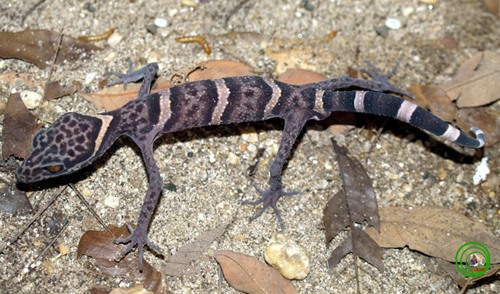VN wants CITES protection for native species
Viet Nam is seeking consensus from members of CITES, the Convention on International Trade in Endangered Species of Wild Fauna and Flora, on tightening the protection of some endangered species in the country.
 |
| A Huu Lien gecko, one of the gecko species only found Viet Nam. — Photo Viet Nam Creatures |
The list of the animals in need of greater protection includes 13 species of gecko, 13 species of newt and several other species of knobby newt. According to CITES Viet Nam, those species become endangered due to trade that sold them to Europe, the US and China as demand for pets grew starting in the 1990s.
Those species are under high threat of extinction, CITES Viet Nam said. It said Europe and China made the same recommendation in an attempt to protect them.
The list made by CITES Viet Nam included five species that are endemic to the country. They are the Cat Ba tiger gecko, Huu Lien gecko, Lichtenfelder’s gecko, Vietnamese warty newt and Vietnamese knobby newt.
Viet Nam also wanted CITES to move three species listed in Appendix II to Appendix I for better protection. They are Vietnamese three striped box turtle (Cuora trifasciata), Vietnamese pond turtle (Mauremys annamensis), and Flower backed box turtle (Cuora galbinifrons).
Viet Nam will join the CITES summit in May in Sri Lanka. The summit includes discussions of measures to protect giraffes from narrowing habitats, Mako sharks from fin trafficking, white rhinos from horn trafficking and Sri Lankan salamanders and 10 ray species from overexploitation.
CITES has 184 members, and Viet Nam joined in 1994. It has separate lists of endangered species, vulnerable species and species its members should protect to prevent exploitation. It connects members in combating trafficking.
This year’s recommendations, once approved at the summit, will protect the safety of 574 species, including mammals, reptiles, amphibians, fish, invertebrates and flora.
(Source: VNS)